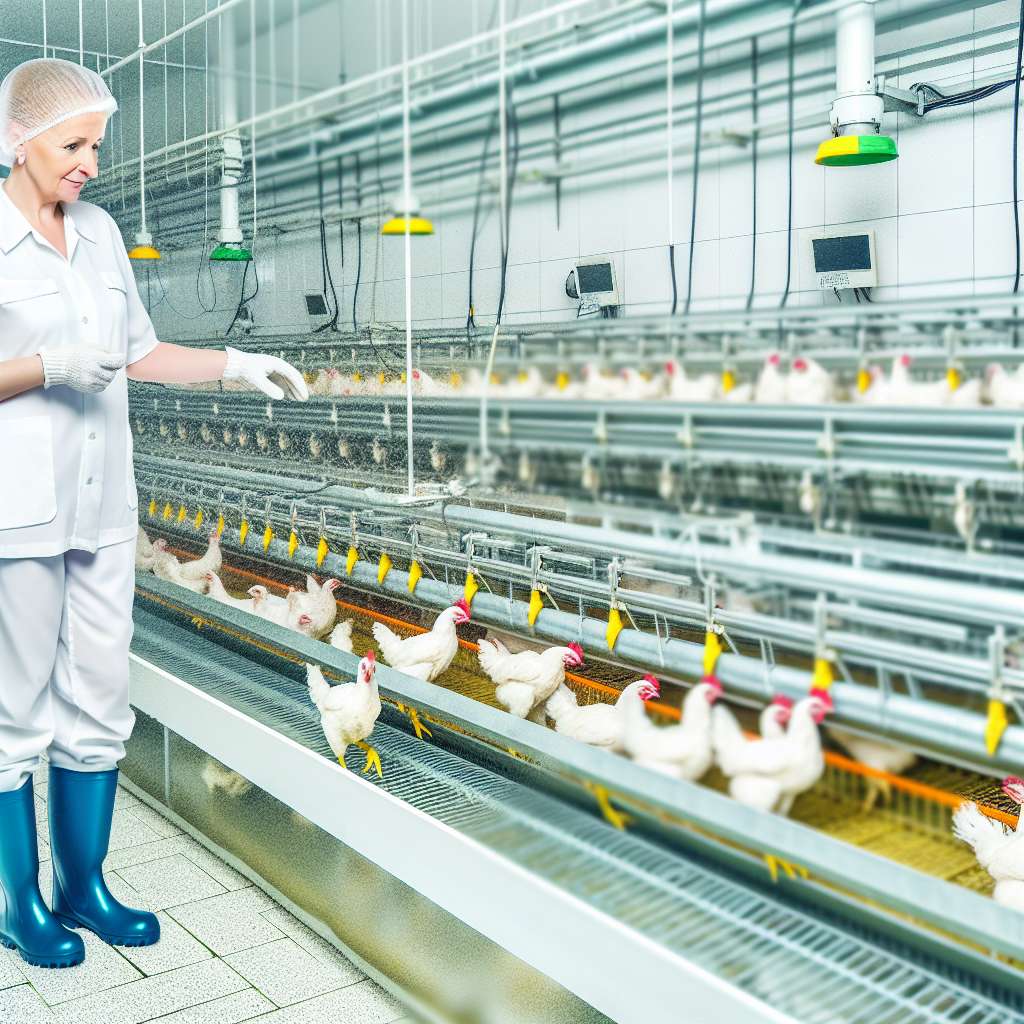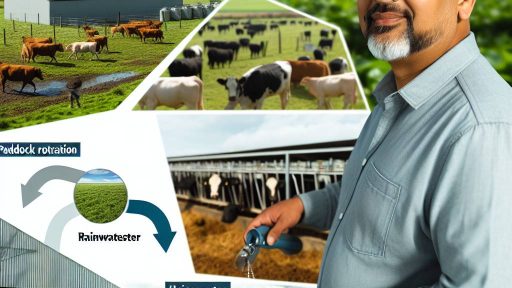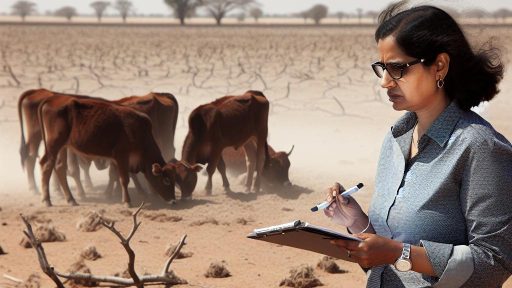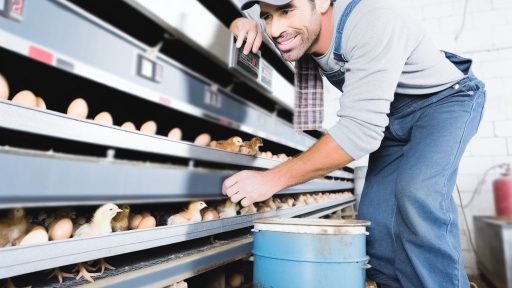Introduction to Broiler Poultry Management
Broiler poultry management is crucial for achieving optimal meat production.
Understanding this field helps farmers maximize profits and ensure sustainability.
Essentially, broiler chickens are bred specifically for meat production.
This industry requires careful planning and execution of various management practices.
Importance of Broiler Management
Effective management significantly impacts the growth and health of broiler chickens.
Moreover, it enhances feed efficiency and overall productivity.
Proper care also reduces the risk of disease outbreaks among poultry.
Farmers can consequently improve their overall yield and profitability.
Key Aspects of Broiler Management
Nutrition plays a pivotal role in successful broiler management.
Proper diets ensure that chickens reach their target weight efficiently.
Housing and environmental conditions also affect growth rates.
Additionally, employing biosecurity measures prevents the introduction of harmful pathogens.
Market and Economic Factors
Understanding market demands is essential for effective poultry management.
Farmers must stay informed of consumer preferences and market trends.
This knowledge helps them make strategic decisions about production and marketing.
Transform Your Agribusiness
Unlock your farm's potential with expert advice tailored to your needs. Get actionable steps that drive real results.
Get StartedCost management remains a vital part of running a sustainable broiler operation.
Choosing the Right Broiler Breed
Understanding Breed Types
Broiler breeds vary significantly in production traits.
Each breed has unique characteristics suited for specific production goals.
Common broiler breeds include Broilers, Ross, and Cobb.
Broilers grow rapidly and have a good feed conversion rate.
Ross birds are known for their muscle yield and efficiency.
Cobb broilers excel in weight gain and overall performance.
Evaluating Growth Rates
Growth rate dramatically affects overall production efficiency.
Producers should analyze the average weight gain of each breed.
Faster growth rates often result in quicker market readiness.
However, balanced growth must also consider health and welfare.
Considering Feed Efficiency
Feed efficiency is a crucial factor in meat production.
Look for breeds with a high feed conversion ratio.
A better feed conversion ratio leads to lower production costs.
Evaluate breed performance based on feed intake relative to weight gain.
Assessing Disease Resistance
Disease resistance is essential for maintaining flock health.
Some breeds exhibit higher resilience to common poultry diseases.
Choose a breed that aligns with your farm’s biosecurity practices.
Healthy birds reduce mortality rates and enhance overall productivity.
Analyzing Market Demands
Market demands influence the choice of broiler breeds.
Research local consumer preferences for meat quality and type.
Some consumers prefer organic or free-range broilers.
Understand the trends in your region to align with buyer expectations.
Cost Implications
Cost is always a consideration when selecting broiler breeds.
Showcase Your Farming Business
Publish your professional farming services profile on our blog for a one-time fee of $200 and reach a dedicated audience of farmers and agribusiness owners.
Publish Your ProfileInitial stock costs, feed prices, and healthcare affect profitability.
Calculate the anticipated return on investment for each breed.
Consider ongoing costs against the expected market price for chicken.
Broiler Housing: Designing Efficient and Comfortable Living Conditions
Importance of Proper Housing
Proper housing is crucial for broilers’ health and welfare.
A well-designed house enhances growth and reduces stress.
Additional benefits include improved meat quality and production efficiency.
Key Design Elements
Designing an effective broiler house requires thoughtful planning.
Consider ventilation systems to ensure good air quality.
Additionally, temperature control is vital for maintaining comfort.
Effective insulation minimizes fluctuations in temperature.
Moreover, proper flooring materials can improve hygiene.
Ventilation Systems
Good ventilation keeps air fresh and reduces harmful gases.
Utilize natural ventilation methods where possible.
Mechanical systems can also provide effective climate control.
Regular checks ensure that systems function optimally.
Temperature Management
Broilers prefer temperatures between 20 and 24 degrees Celsius.
Heated systems may be necessary in colder climates.
Cooling systems help maintain comfort during summer months.
Monitoring systems can help maintain ideal temperatures.
Space Requirements
Space significantly impacts the overall health of broilers.
Allow adequate space to reduce competition for resources.
As a general guideline, provide approximately 0.1 square meters per broiler.
This space helps prevent stress and aggression.
Hygiene and Biosecurity
Maintaining hygiene is essential to prevent disease outbreaks.
Implement a regular cleaning schedule for all housing areas.
Limit access to the broiler house to reduce disease risks.
Utilize cleaning agents that are effective yet safe for birds.
Comfort Features
Comfort features include nesting areas and perches for enrichment.
Provide them in a way that doesn’t compromise space.
Natural light enhances the well-being of broilers.
Use curtains to control light exposure on sunny days.
Access to Food and Water
Ensure easy access to food and fresh water at all times.
Feeding systems should be designed for efficiency.
Automated systems can save time and effort.
Regularly check to prevent blockages in feeding systems.
Monitoring and Maintenance
Regular monitoring of conditions optimizes broiler health.
Install systems to track temperature and humidity levels.
Address any issues as they arise to prevent larger problems.
Scheduled maintenance keeps systems functioning effectively.
Find Out More: Strategies for Reducing Stress in Commercial Swine Farming
Showcase Your Farming Business
Publish your professional farming services profile on our blog for a one-time fee of $200 and reach a dedicated audience of farmers and agribusiness owners.
Publish Your ProfileFeeding Strategies for Optimal Growth
Importance of Nutrition
Proper nutrition is crucial for broiler growth and health.
It contributes to muscle development and meat quality.
Additionally, good nutrition helps birds resist diseases.
Understanding Feed Components
Balanced rations must include carbohydrates, proteins, vitamins, and minerals.
Carbohydrates provide energy for growth.
Proteins are essential for muscle development and tissue repair.
Vitamins and minerals support various bodily functions.
Selecting the Right Feed
Choose high-quality commercial feeds designed for broilers.
Consider feed formulations based on their specific growth phases.
For instance, starter feeds are crucial in the initial days.
Grower and finisher feeds must meet the birds’ increasing demands.
Incorporating Supplements
Supplements can enhance the nutritional value of feeds.
Probiotics promote gut health and improve feed efficiency.
Enzymes help break down nutrients, enhancing their absorption.
Furthermore, amino acid supplements can support muscle growth.
Monitoring Feed Intake
Regularly assessing feed intake is vital for growth tracking.
Ensure all birds are receiving adequate quantities of feed.
Adjust rations based on observed growth patterns.
Consistency in feed quality is essential for optimal results.
Water Quality and Availability
Fresh, clean water is equally important as feed availability.
It aids in digestion and overall health.
Daily checks on water systems ensure continuous access.
Improved hydration leads to better growth and feed conversion.
Creating a Feeding Schedule
Establishing a consistent feeding schedule benefits the birds.
Regular feeding times can enhance growth rate and efficiency.
Adjust the feeding plan as the birds grow older.
Keep records of feeding schedules for analysis.
Learn More: Beekeeping Tips for Preventing Colony Collapse Disorder
Health Management
Vaccination
Vaccination is crucial for the health of broiler chickens.
It helps prevent common diseases that can affect production.
Farmers should develop a vaccination schedule tailored to their flock.
Consulting with a veterinarian ensures the right vaccines are used.
Consider vaccines for diseases like Newcastle disease and infectious bronchitis.
Administration of vaccines should be done with care and precision.
Boosting immunity through vaccination enhances overall flock health.
Disease Prevention
Disease prevention must be a top priority in broiler production.
Regular health checks help identify potential health issues early.
Observing chickens for abnormalities can prevent major outbreaks.
Maintaining clean living conditions reduces disease transmission.
Using proper feeding and nutrition enhances chickens’ resistance.
Showcase Your Farming Business
Publish your professional farming services profile on our blog for a one-time fee of $200 and reach a dedicated audience of farmers and agribusiness owners.
Publish Your ProfileStress management techniques improve overall health and growth rates.
Isolation of sick birds is essential to control disease spread.
Biosecurity
Biosecurity practices protect against the introduction of disease.
Farmers should create designated clean and dirty areas on the farm.
Restricting access to the farm helps minimize disease risks.
Effective equipment sanitation prevents disease from spreading.
Transport vehicles should be regularly cleaned and disinfected.
Employees must follow biosecurity protocols to ensure safety.
Education and training are vital to maintaining biosecurity standards.
See Related Content: Organic Livestock Farming for Regenerative Practices

Water Quality and Management: Ensuring Adequate Hydration
Importance of Water Quality
Water quality directly influences broiler health and growth rates.
Maintaining clean water reduces the risk of disease transmission.
In addition, high-quality water enhances nutrient absorption.
Factors Affecting Water Quality
Several factors determine the quality of water for poultry.
These include chemical composition, temperature, and microbial contamination.
Regular testing helps identify these factors early.
Monitoring Water Quality
Establish a routine for testing water quality regularly.
Use chemical tests to check for pH, turbidity, and chlorine levels.
Microbial tests should also be part of the monitoring plan.
Strategies for Managing Water Supply
Ensure an adequate and constant supply of clean water.
Install automated drinkers to minimize contamination.
Moreover, consider backwashing water systems regularly.
Water Temperature Management
Water temperature can significantly impact broiler performance.
Maintain water at a comfortable temperature for optimal consumption.
During hot weather, cool water increases drinking rates.
Treating Water for Quality Improvement
Treating water can enhance its safety and quality.
Additives like hydrochloric acid can control pH levels.
Additionally, consider using probiotics to promote gut health.
Addressing Water Contamination
Identify potential contaminants in the water supply.
Regularly inspect water sources for pollutants and toxins.
Take corrective actions immediately to ensure safe water access.
Training Staff on Water Management
Educate staff about the importance of water quality management.
Provide training on proper techniques for handling water systems.
Empowered staff contribute significantly to overall poultry health.
Explore Further: Grazing Systems for Improving Forage Growth and Soil Fertility
Monitoring Growth and Performance
Key Metrics to Track
Monitoring growth and performance in broiler production is crucial.
Several key metrics help producers evaluate their operations effectively.
Weight gain is one of the primary metrics.
Measuring average daily gain provides insights on growth rates.
Feed conversion ratio (FCR) also plays a vital role.
Showcase Your Farming Business
Publish your professional farming services profile on our blog for a one-time fee of $200 and reach a dedicated audience of farmers and agribusiness owners.
Publish Your ProfileThis metric assesses the efficiency of feed utilization.
Mortality rates indicate overall flock health and management success.
Furthermore, checking body condition scores ensures birds are not over- or under-fed.
Lastly, monitoring environmental conditions is essential for optimal performance.
Evaluation Methods
Producers can utilize various methods to evaluate growth metrics.
Regular weight assessments should be scheduled throughout the production cycle.
Weighing birds at different stages helps identify trends in weight gain.
Conducting a feed intake analysis can provide further insights.
Tracking daily feed consumption helps determine FCR over time.
Using data recording software simplifies collecting and analyzing growth data.
Additionally, routine health assessments contribute valuable information.
Veterinary check-ups can help diagnose underlying health issues.
Data interpretation is vital to make informed management decisions.
Utilizing Technology
Advancements in technology greatly enhance monitoring efforts.
Automated feeding systems can track feed consumption accurately.
Moreover, mobile applications facilitate real-time data recording.
Remote monitoring systems allow for tracking environmental parameters easily.
These technologies offer alerts for any deviations in growth metrics.
Incorporating these tools improves overall management practices.
Consultation with tech experts can optimize system integration.
Ultimately, embracing technology leads to better resource management.
Implementing Best Practices
Implementing best practices ensures overall growth efficiency.
Regular staff training improves skill levels in monitoring techniques.
Maintaining excellent hygiene practices minimizes disease spread.
Proper ventilation and thermal comfort enhance growth performance.
Utilizing balanced nutrition supports healthy development.
Monitoring growth requires a combination of metrics and evaluation methods.
Producers should remain proactive to achieve optimal broiler performance.
Sustainability Practices in Broiler Production
Environmental Impact
Broiler production significantly affects the environment.
It contributes to greenhouse gas emissions and soil degradation.
Implementing sustainable practices helps mitigate these issues.
For example, utilizing renewable energy sources reduces reliance on fossil fuels.
Moreover, sustainable waste management minimizes pollution.
Water conservation strategies are also essential in broiler farming.
These practices ensure the preservation of vital water resources.
Economic Considerations
Sustainable poultry management enhances economic viability.
Reducing feed costs through efficient practices can improve profits.
Investing in sustainable technologies often leads to long-term savings.
Furthermore, eco-friendly products attract a growing market segment.
Consumers increasingly demand ethically produced meat products.
Showcase Your Farming Business
Publish your professional farming services profile on our blog for a one-time fee of $200 and reach a dedicated audience of farmers and agribusiness owners.
Publish Your ProfileTherefore, integrating sustainability in broiler production can boost market competitiveness.
Best Practices for Sustainability
Employing specific practices can improve sustainability in broiler production.
- Utilize organic feed to ensure healthier chickens and fewer chemicals in the environment.
- Adopt rotational grazing methods to improve land use.
- Implement biosecurity measures to protect flock health and prevent disease spread.
- Incorporate technology for monitoring and optimizing resource use.
- Practice integrated pest management to minimize pesticide usage.
By following these practices, producers can enhance productivity sustainably.
Community Engagement and Education
Engaging with the community fosters awareness of sustainable practices.
Educating farmers about the benefits of sustainability is crucial.
Workshops and training sessions can disseminate valuable knowledge.
Additionally, collaboration with local agricultural organizations can provide resources.
Community support strengthens the adoption of sustainable broiler production.
In turn, this helps build a resilient agricultural system.
Additional Resources
Chicken from Farm to Table | Food Safety and Inspection Service




